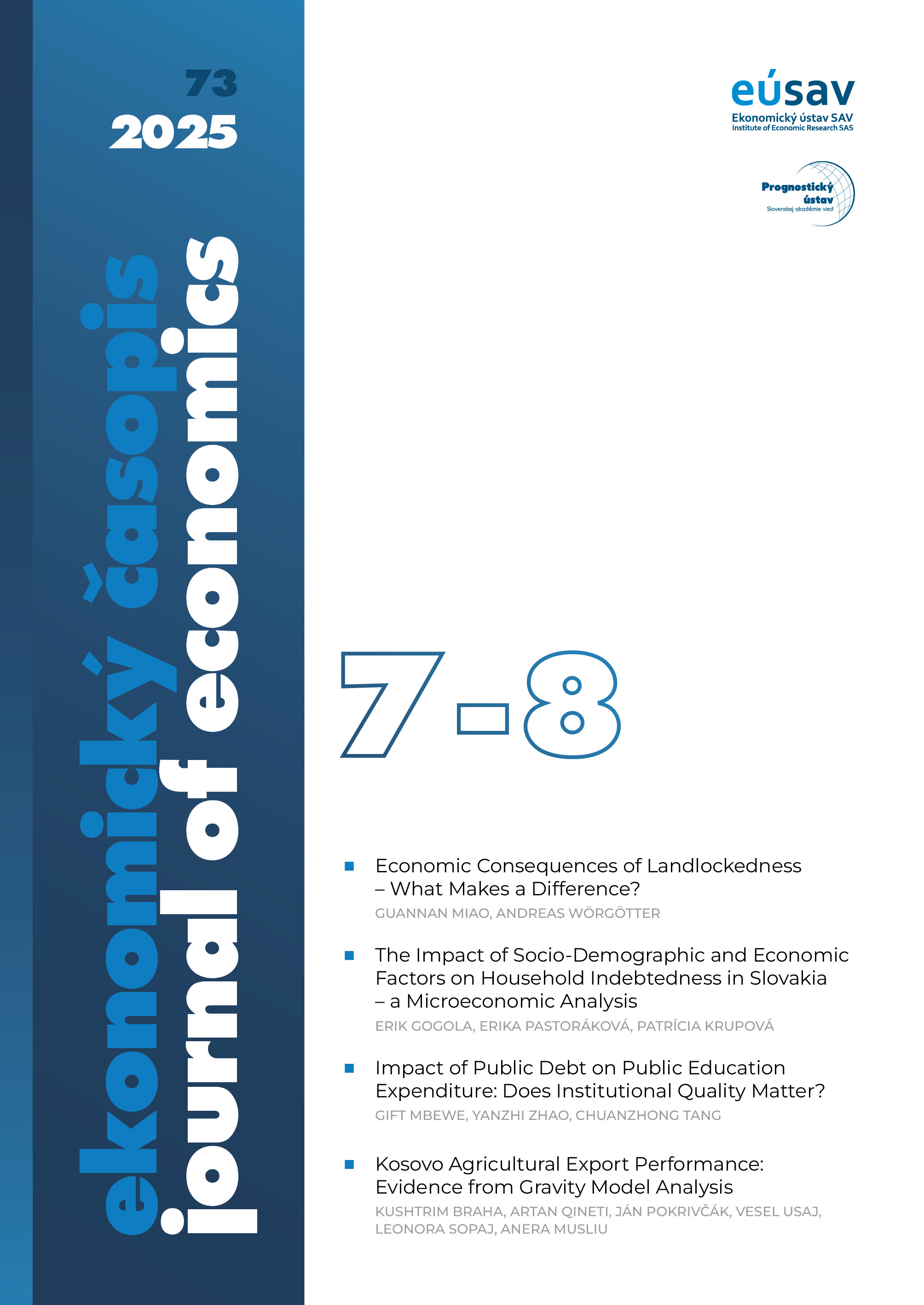Economic Consequences of Landlockedness – What Makes a Difference?
DOI:
https://doi.org/10.31577/ekoncas.2025.07-08.01Kľúčové slová:
geography, institutions, convergenceAbstrakt
This paper investigates the economic impact of landlockedness applying a conditional convergence model. The econometric analysis is carried out for three income groups (high, upper middle, lower middle and low income) following the World Bank classification according to the level of Gross Domestic Product (GDP) per capita at constant 2010 US dollars and the time before and after the global financial crisis (GFC) of 2007/9. It is for the first time that the consequences of landlockedness for economic activity are investigated with respect to income groups and the GFC. The quality of institutions, investment rate, landlockedness, international trading costs and trade openness are used as conditional variables. The time period under investigation is 1995 to 2016. Descriptive analysis reveals the considerable heterogeneity among the growth performance of countries over time, income groups and geographical status. The econometric analysis suggests that especially for low-income countries a minimum quality of institutions is necessary to embark a convergence trajectory. This paper contributes to the debate between geography and institutions as main obstacles for higher economic growth in landlocked countries.
Sťahovanie
Publikované
Číslo
Rubrika
Licencia
Copyright (c) 2025 Andreas Wörgötter, Guannan Miao
Táto práca je licencovaná pod Medzinárodnou licenciou Creative Commons Attribution-NonCommercial-NoDerivatives 4.0.


